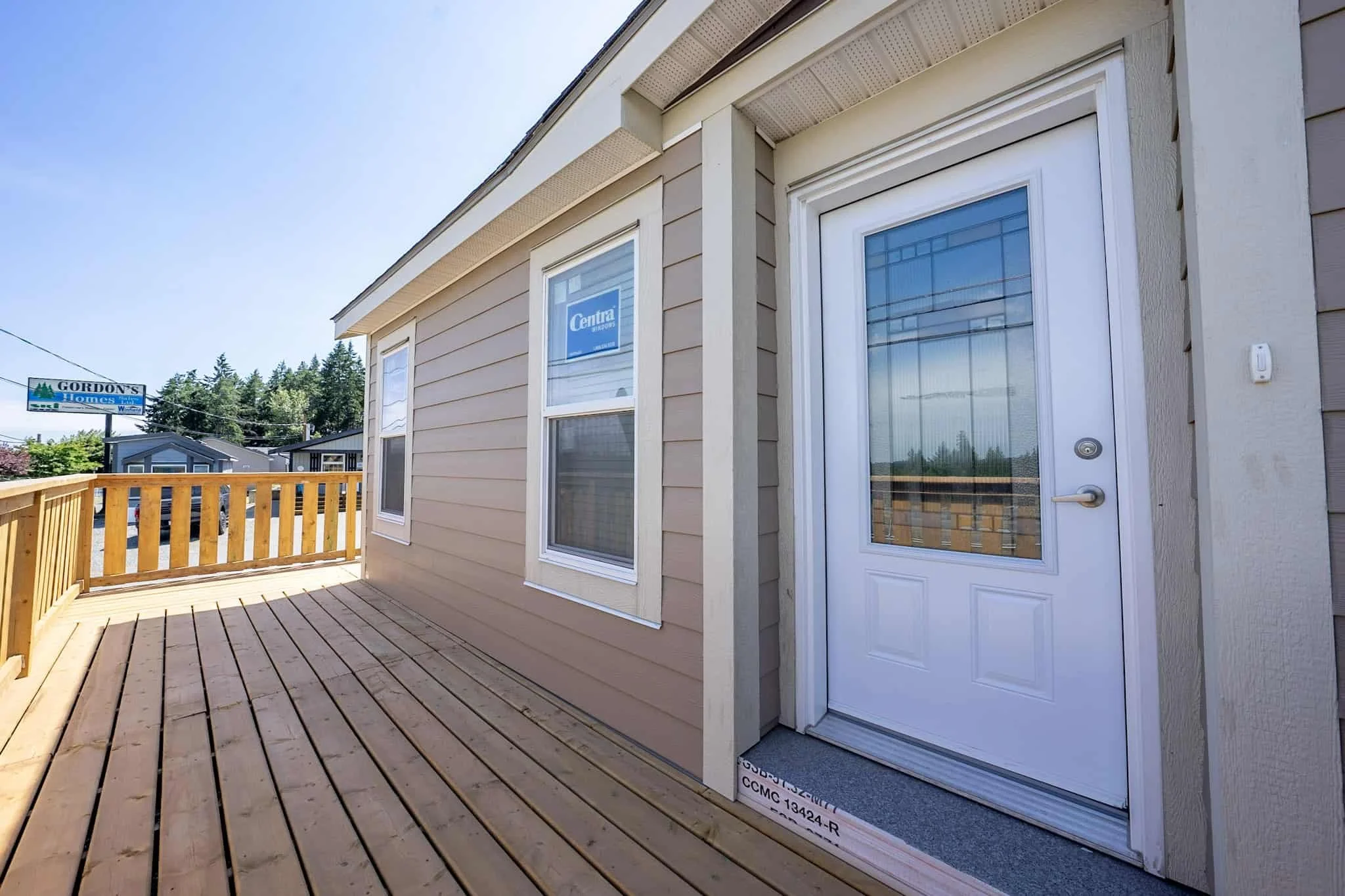
Modular vs. Stick-Built Homes
Why Modular Makes Sense
When most people think of a new home, they picture a traditional stick-built house — constructed board by board on-site. Modular homes follow a different approach: they’re built in sections inside a climate-controlled factory, then transported to your property and assembled on a permanent foundation.
Because construction takes place indoors, modular homes avoid the weather delays and material issues that can affect traditional builds. Every stage of the process is monitored for quality control, ensuring the finished product meets strict standards. Best of all, modular homes are built to the same code as site-built homes (CSA A277), meaning they meet or exceed the same safety, efficiency, and durability requirements.
Stick-built homes, by comparison, are more vulnerable to shifting schedules and costs. Weather interruptions, labor shortages, and on-site theft can all add time and expense, stretching out what is already a lengthy building process.
Why More Homeowners Are Choosing Modular
Faster timelines — Factory construction means you can move in months sooner than with traditional builds.
Reliable quality — Every step is inspected in a controlled environment, ensuring consistency.
Personalization — Choose from a range of layouts, finishes, and upgrades to create a home that reflects your style.
Cost certainty — Predictable pricing with fewer delays and unexpected expenses.
Energy efficiency — Tight, precise construction helps lower your utility bills and reduce environmental impact.
| Modular Homes | Stick Built Homes | |
|---|---|---|
| Construction | Built in sections inside a climate-controlled factory, then transported and assembled on-site. |
Built entirely on-site, piece by piece. |
| Building Code | CSA A277 — the same standards as BC site-built homes. |
BC Building Code (site-built standards). |
| Quality Control | Consistently monitored in a controlled environment. |
Quality varies depending on weather, site conditions, and trades. |
| Timeline | Faster build times — typically move in months sooner. |
Longer build times, often extended by delays. |
| Delays | Minimal risk of weather or site-related delays. |
Weather, labor shortages, and theft can slow progress. |
| Costs | Predictable, with fewer unexpected expenses. |
Costs can escalate due to delays and material fluctuations. |
| Customization | Wide range of layouts, finishes, and upgrades. |
Fully customizable, but often at higher cost and longer timelines. |
| Energy Efficiency | Precise construction creates tighter, more efficient homes. |
Efficiency varies depending on build quality and site practices. |
| Best For | Homeowners wanting a permanent, high-quality home without the long wait. |
Buyers willing to manage longer timelines and higher costs for traditional on-site construction. |
